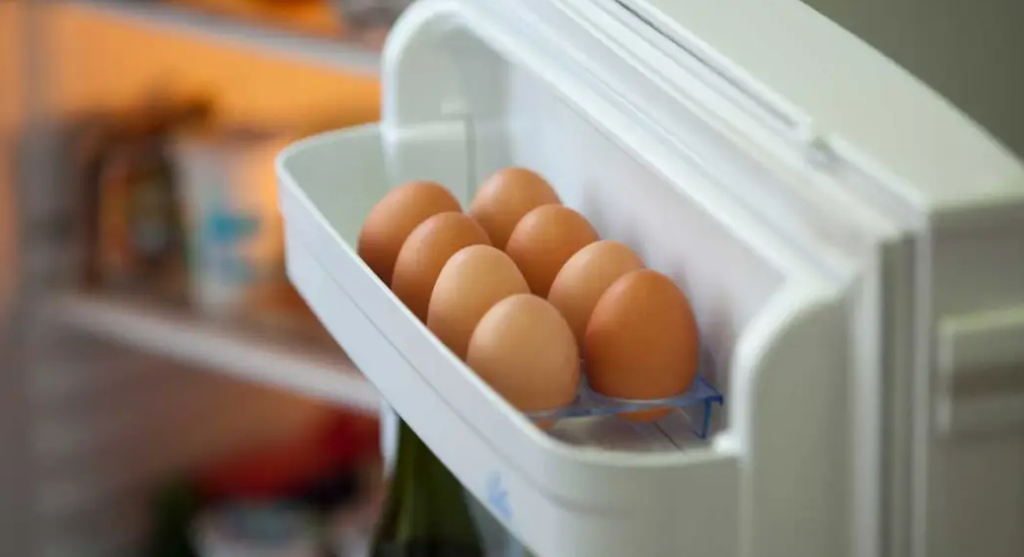Proper storage of eggs is crucial for maintaining their freshness and preventing spoilage. Many refrigerators come with built-in compartments in the door specifically designed for eggs, but placing them there might not be the best option. Although it may seem convenient, storing eggs in the refrigerator door can impact their quality and safety. Here’s why eggs should be stored differently and how to keep them fresh for longer.
Why the Refrigerator Door is Not Ideal for Eggs
Temperature Fluctuations
Every time the refrigerator door is opened and closed, the temperature fluctuates. Since eggs are perishable, they need a stable, cold environment to stay fresh. The frequent changes in temperature in the door area can cause eggs to deteriorate faster than if they were stored in a more consistent cooling zone inside the fridge.

Increased Risk of Bacterial Growth
Eggs have a natural protective layer that helps prevent bacteria from entering. However, when exposed to fluctuating temperatures, condensation can form on the eggshell, making it easier for bacteria to penetrate and multiply. This increases the risk of foodborne illnesses.
Risk of Breakage
Storing eggs in the door means they are constantly subjected to movement as the door is opened and closed. This can lead to eggs shifting, cracking, or even breaking, making them more vulnerable to contamination.
Best Practices for Storing Eggs
To ensure that eggs remain fresh and safe for consumption, follow these best storage practices:
- Keep Eggs in Their Original Carton
The original egg carton is designed to protect eggs from absorbing strong odors from other foods in the fridge. It also helps prevent moisture loss, keeping the eggs fresher for longer. Additionally, the carton provides important information such as the expiration or “best by” date. - Store Eggs on a Middle or Lower Shelf
Instead of placing eggs in the refrigerator door, store them on a stable shelf where the temperature remains constant. The middle or lower section of the fridge is typically the coldest and most stable area, ensuring that eggs are kept at an ideal temperature. - Refrigerate Eggs at the Right Temperature
Eggs should be stored at a temperature of 40°F (4°C) or lower. This prevents bacterial growth and ensures that eggs remain fresh for an extended period. - Avoid Washing Eggs Before Storage
Washing eggs can remove their natural protective coating, making them more susceptible to bacteria. If eggs need to be cleaned, it’s best to wash them just before use rather than before storage. - Use Eggs Before Their Expiration Date
While eggs can last beyond their expiration date if stored properly, it’s always best to use them within the recommended timeframe to maintain their quality. If unsure about freshness, perform a simple float test—place an egg in a bowl of water; if it sinks, it’s fresh, but if it floats, it may no longer be safe to eat. - Consider Freezing for Long-Term Storage
If you have excess eggs and won’t use them before they expire, consider freezing them. Crack the eggs into a freezer-safe container, whisk them lightly, and store them for later use in cooking or baking.

Conclusion
While it might seem convenient to store eggs in the refrigerator door, doing so exposes them to temperature fluctuations and movement that can compromise their freshness and safety. Instead, keeping eggs in their original carton on a middle or lower shelf inside the fridge ensures they remain at a stable temperature, reducing the risk of spoilage and bacterial contamination. By following proper storage practices, you can keep eggs fresher for longer and minimize food waste.

















